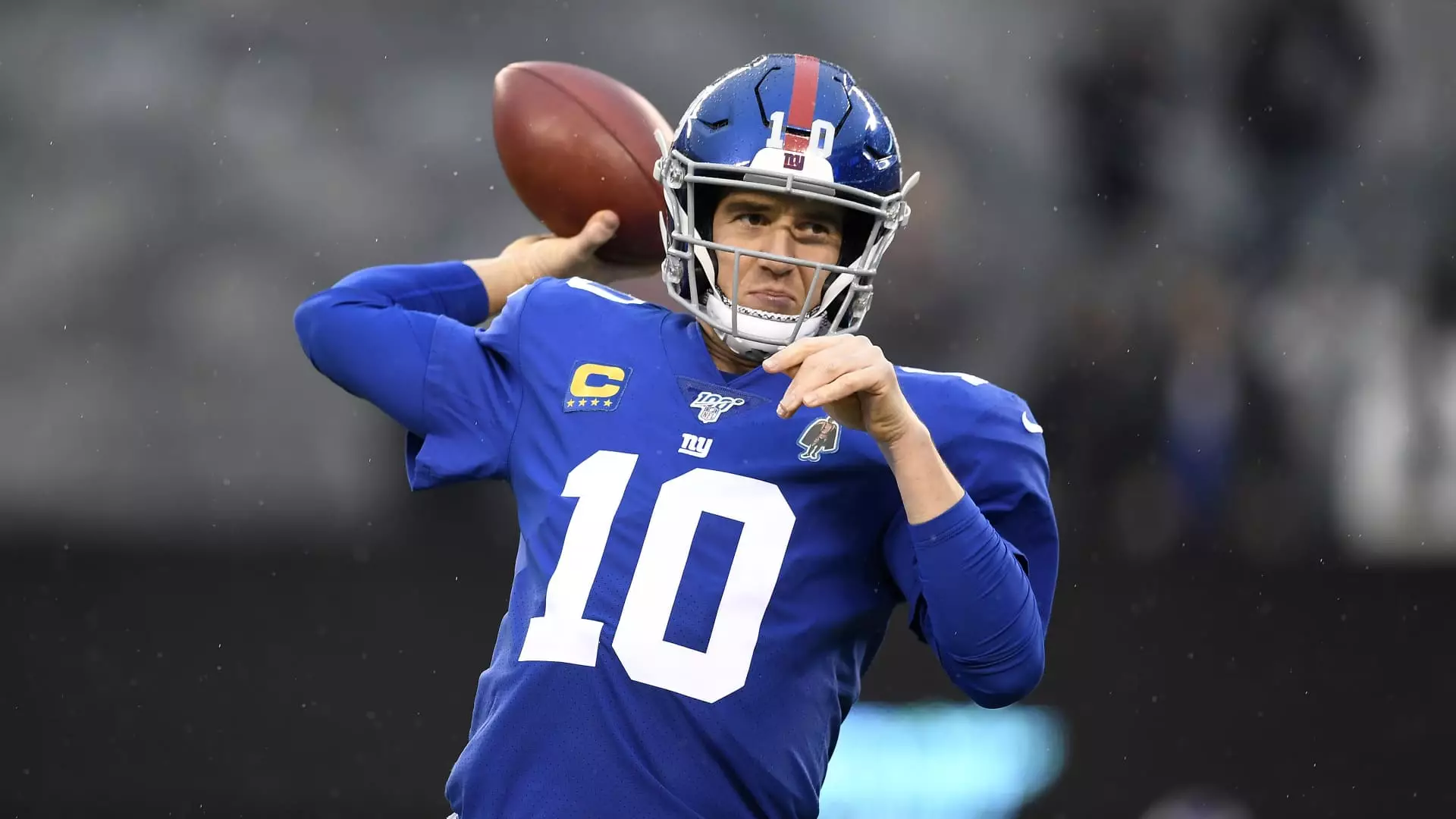In recent years, the valuation of professional sports teams has soared to unprecedented heights, transforming franchises into nearly untouchable assets for everyday investors. Eli Manning’s admission that he was priced out of acquiring a 1% stake in the New York Giants offers a stark reflection of this reality. While this might seem like a case of personal financial limitation, it underscores the broader trend: the intense capital inflation in sports ownership is fundamentally reshaping who can participate in this lucrative, yet increasingly elitist, industry.
The valuation numbers are staggering. The Giants, still a storied franchise, are now worth nearly $8 billion, with recent sales of minority interests indicating a market that values teams at even higher levels. These figures—along with similar valuations of the 49ers and Lakers—highlight an industry that has transitioned from a playground for wealthy families to an arena where ownership is increasingly limited to ultra-high-net-worth individuals and institutional investors. This reality marginalizes many former players or fans who might have aspired to stake a claim in their favorite teams but find themselves priced out.
Manning’s comment about the $10 billion valuation being “too big a number” illuminates a critical perspective: the financial barriers to entry are intensifying to the point where sports ownership is no longer accessible to even those considered financially successful, let alone the average investor or passionate enthusiasts. It’s a wake-up call for those who believe the sports industry is still within their reach, revealing that the era of affordable franchise investment is fading fast.
The Impact of Valuation Inflation on Traditional Sports Investment Models
The transition toward higher valuations is reshaping the very fabric of sports ownership structures. The sale of minority stakes at exorbitant valuations is emblematic of a broader trend driven by influential private equity firms, global investors, and celebrities eager to diversify their portfolios with high-profile assets. Yet, for the average investor or former athlete like Manning, these transactions are exclusivity-driven phenomena that reinforce barriers rather than democratize opportunities.
This paradigm shift raises crucial questions about the future of sports ownership. Are these assets still rooted in community and tradition, or are they evolving into elite investment vehicles? The latter seems more accurate, with NFL and NBA valuations skyrocketing, thus making genuine participation in the ownership landscape a privilege only for the very wealthy. Eli Manning’s decision to step back echoes the sentiment of many who recognize that, despite their passion and influence, they are now sidelined by the sheer scale of these valuations.
Furthermore, the involvement of private equity firms and billionaire investors signals a significant shift toward financialization. Sports teams are increasingly viewed as assets for capital appreciation rather than community assets or personal passions. This trend could lead to a detachment from the grassroots fan base and an erosion of the familial, community-oriented character that historically defined franchises like the Giants.
The Implications for Future Ownership and the Industry’s Social Contract
Manning’s stance also hints at a broader ideological shift in how sports organizations relate to their former employees and fans. His concern about conflicts of interest—such as possible interference with his ESPN commitments or coaching relationships—highlight a growing tension between commercial interests and personal integrity.
The ownership landscape is becoming a reflection of modern capitalism’s vertical integration. The NFL’s move to permit private equity involvement signals an acceptance that franchises are now prime investment opportunities, rather than merely community-owned institutions. While this is likely to lead to increased revenue streams and valuation surges, it also raises questions about the social value of sports teams and whether they will remain accessible and relatable institutions or become purely financial assets.
Manning’s decision to have no further interest in buying into the Giants suggests a recognition that the playing field has shifted. For center-right liberalism—favoring economic growth coupled with responsible regulation—this scenario underscores the necessity for balanced oversight. While encouraging investment is beneficial, unchecked valuation inflation risks creating an insurmountable barrier to entry, threatening the diversity and democratic spirit historically associated with American sports.
Manning’s withdrawal from the ownership race symbolizes a broader warning about the direction of professional sports investments. As valuations continue to climb, only the ultra-wealthy will possess the leverage to participate, arguably transforming this once populist domain into an exclusive club. If the industry is to sustain its cultural relevance, policymakers and industry leaders must confront the implications of valuation inflation, striving to foster a balance that sustains both profitability and the foundational democratic ideals that have long defined American sports.

